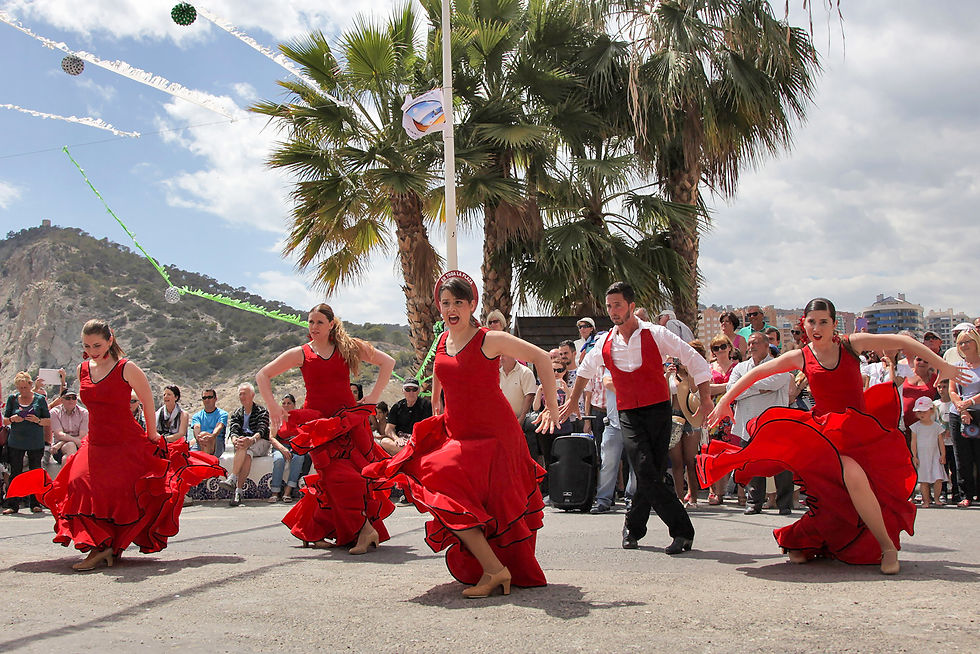International Travel and Climate Change
- Simcha

- Jul 26, 2023
- 4 min read

Carla and I are heartbroken as we follow news of the wildfires on the islands of Corfu, Rhodes, and elsewhere in Greece. Having just returned from there and having fallen totally in love with Corfu, it’s been a difficult story to follow, and our hearts are with all of those who have been impacted by the fires.

We are also watching as, across the globe, and especially in the Mediterranean, we are seeing extreme heat that is having a devasting impact on countries like Spain and Italy, as well as Greece.

From following our blog, you know that Carla and I love international travel. At the same time, we are also very aware that international flights emit damaging carbon into the atmosphere that contributes to the climate crisis. And for us, climate change is real, and the past few weeks have sadly confirmed just how real it is. Tens of thousands of scientists in more than a hundred nations have amassed an overwhelming amount of evidence pointing to a clear conclusion: humans are the main cause of climate change. We're the ones who burn fossil fuels, produce livestock, and clear trees – thus contributing to the amount of heat-trapping gases in the atmosphere.

At the same time, travel, and for us, international travel, is a powerful way to better understand and participate in today’s world. By encountering other cultures, we can open our hearts and minds to how others live, learn to be better listeners, and see citizens from around the globe as part of our own family. In learning to appreciate their foods, art, and customs, we find ourselves expanding and becoming less insular.

So, how do we reconcile this conundrum? We understand that our love of international travel negatively impacts the environment and yet we don’t believe that halting travel is the answer for us. We have chosen instead to mitigate our traveling carbon footprint by investing in some nonprofit groups that are fighting climate change throughout the world, especially in underdeveloped countries. A round-trip flight to Europe emits roughly as much climate-changing carbon, per passenger, as six months of driving, and scientists have figured that it takes roughly a $30 investment - in helping the developing world with climate initiatives - to offset one round trip flight from the U.S. to Europe. So, we have chosen to impose a carbon tax on ourselves.

This type of investing/donating is called carbon offsetting. It allows you to balance your impact on the climate by compensating for the emissions you produce, by reducing CO2 and other greenhouse gas emissions in other parts of the world. In 2022, we made 2 trips to Europe. Our offsets would then be $120 for the year. However, we wanted to do more than that, so we multiplied it by ten and invested $1,200 in three organizations that help farmers in the developing world develop better agricultural practices that are better suited to our new climate-changing world. Since most of the impact of climate change affects the poorest and least developed countries, that is where we have decided to put our money: This year, in 2023, we will make two trips again to Europe by the year’s end, and so our contribution will be the same as last year - $1,200.

Here is some information about the organizations that we support:
Agros International’s mission is to break the cycle of poverty and create paths to prosperity for farming families in rural Latin America. Founded in 1984, Agros advances a holistic model of economic and social development through four key opportunity areas: land ownership, market-led agriculture, financial empowerment, and health & well-being. To date, Agros has partnered with 45 rural communities in El Salvador, Guatemala, Honduras, Mexico, and Nicaragua, impacting the lives of over 20,000 people. Agros’ vision is that rural poor families own agricultural land, attain economic self-sufficiency, realize their God-given potential, and pass on to future generations the values and resources that enable them to flourish.
Using climate-resilient and nutritionally targeted agriculture practices, Global Communities works to make a sustained and positive difference in helping vulnerable communities improve their nutrition and food security while adapting to and mitigating the effects of climate change. Global Communities’ programs help farmers produce more reliable sources of food, increase their incomes, accumulate productive assets, and attain increased household stability and financial security. They work with farmers to provide access to knowledge, skills, inputs, and markets, as well as ongoing support for climate-adapted and productivity-enhancing sustainable agricultural practices.
The vision of the ZEITZ foundation is of an ecosphere – our planet and all its life-sustaining regions – maintained in the healthiest possible state, with the major contribution to that health coming from people making sustainable choices. The mission of the ZEITZ foundation is to create and support projects promoting an inclusive, holistic paradigm of conservation that enhances livelihoods and fosters intercultural dialogue while achieving long-lasting positive impact and sustainability.

Our hope is that in sharing this information with you, we will both educate and inspire you to travel more sustainably - to understand how you can make a difference by mitigating your own travel carbon footprint. So please, go out into the world with open hearts and minds. Travel. Encounter the unknown, meet amazing people, explore other cultures . . . all with touching as lightly and responsibly as possible by helping those communities who are most affected by the impact of climate change.




Valuable information providing a unique perspective on how each of us can creatively find ways to make our values actionable. Thank you!
Good stuff Simcha! We donate regularly via Rick Steves‘ carbon offset fund which contains some of the organizations you reference. Keep this important conversation going! 👍